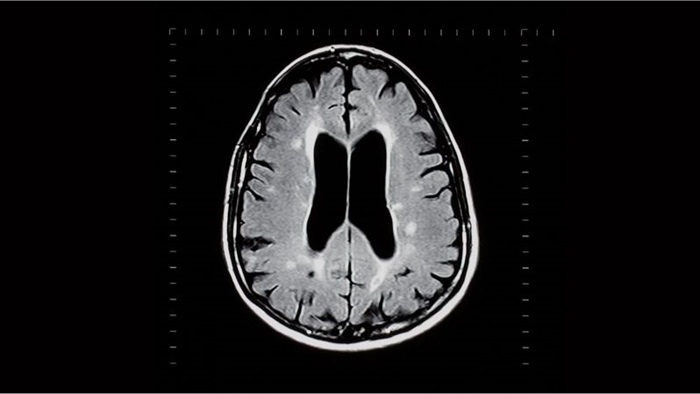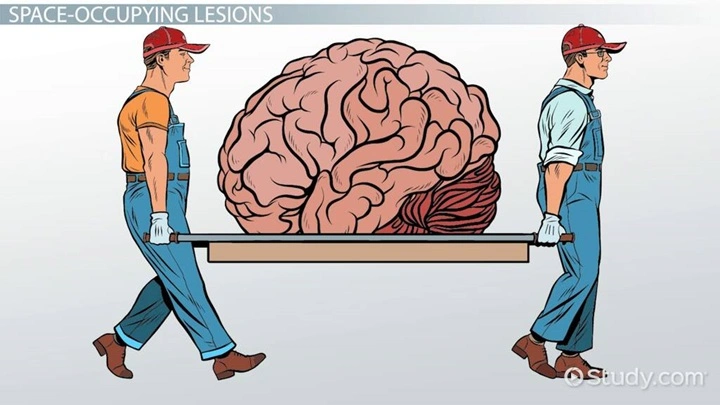Brain lesions are abnormalities or damaged areas in the brain tissue that can result from various underlying conditions. These lesions can manifest in different forms and locations within the brain, leading to a range of symptoms and potential complications. Understanding the diseases that can cause brain lesions is crucial for accurate diagnosis, treatment, and management. In this comprehensive guide, we delve into the diverse spectrum of diseases associated with brain lesions, exploring their causes, symptoms, diagnosis, and treatment options.
What Are Brain Lesions?
Brain lesions refer to abnormal areas of damaged brain tissue, which can appear as spots, masses, or scars. These lesions may be detected through imaging techniques such as MRI (magnetic resonance imaging) or CT (computed tomography) scans. They can vary in size, shape, and location within the brain, and their effects depend on factors such as their size, location, and underlying cause.
Causes of Brain Lesions:

Brain lesions can arise from a multitude of causes, including:
- Traumatic Brain Injury (TBI):
- Severe blows or jolts to the head can lead to traumatic brain injury, causing lesions in the affected areas. TBI-induced lesions may result from direct impact or acceleration-deceleration forces during accidents.
- Stroke:
- Ischemic strokes occur when blood flow to the brain is blocked, leading to tissue damage and the formation of lesions. Hemorrhagic strokes, on the other hand, involve bleeding within the brain, causing similar lesions due to the disruption of blood supply.
- Infections:
- Certain infections, such as meningitis or encephalitis, can result in inflammation of the brain tissue, leading to the formation of lesions. Infectious agents like bacteria, viruses, or fungi may directly damage brain cells, causing lesions to develop.
- Neurodegenerative Diseases:
- Progressive neurodegenerative conditions like multiple sclerosis (MS), Alzheimer’s disease, or Parkinson’s disease can cause brain lesions over time. These diseases involve the gradual deterioration of nerve cells and myelin sheaths, leading to the formation of lesions throughout the brain.
- Tumors:
- Brain tumors, whether benign or malignant, can create lesions as they grow and compress surrounding brain tissue. These lesions can cause neurological symptoms and may require surgical intervention for removal and treatment.
- Autoimmune Disorders:
- Autoimmune diseases such as lupus or vasculitis can trigger immune responses that target the brain, leading to inflammation and the formation of lesions. These conditions can affect various areas of the brain and may require immunosuppressive therapy to manage symptoms.
- Genetic Disorders:
- Certain genetic conditions predispose individuals to develop brain lesions, such as leukodystrophies or lysosomal storage disorders. These inherited disorders can impact brain development, leading to the accumulation of abnormal substances and the formation of lesions.
Symptoms of Brain Lesions:
The symptoms associated with brain lesions can vary widely depending on factors such as their location, size, and underlying cause. Common symptoms may include:
- Headaches
- Cognitive impairment
- Memory loss
- Seizures
- Weakness or paralysis
- Sensory disturbances
- Speech and language difficulties
- Visual disturbances
The specific combination and severity of symptoms can provide clues to the underlying cause of the brain lesions, guiding further diagnostic evaluation and treatment planning.
Diagnosis of Brain Lesions:
Diagnosing brain lesions typically involves a combination of clinical assessment, imaging studies, and laboratory tests. Healthcare providers may perform the following diagnostic procedures:
- Neurological Examination:
- A thorough evaluation of neurological function can help identify any abnormalities or deficits associated with brain lesions.
- Imaging Studies:
- MRI and CT scans are commonly used to visualize brain lesions and assess their size, location, and characteristics. Advanced imaging techniques may also be employed for detailed evaluation, such as diffusion-weighted imaging (DWI) or magnetic resonance spectroscopy (MRS).
- Laboratory Tests:
- Blood tests, cerebrospinal fluid analysis, or genetic testing may be conducted to identify underlying causes of brain lesions, such as infections, autoimmune disorders, or metabolic abnormalities.
- Biopsy:
- In some cases, a biopsy may be necessary to obtain a tissue sample from the brain lesion for further analysis, particularly when malignancy or atypical features are suspected.
Treatment Options for Brain Lesions:
The treatment approach for brain lesions depends on various factors, including the underlying cause, location, size, and severity of symptoms. Treatment modalities may include:
- Medications:
- Depending on the underlying condition, medications such as antiepileptic drugs, corticosteroids, immunosuppressants, or disease-modifying therapies may be prescribed to manage symptoms and prevent disease progression.
- Surgery:
- Surgical intervention may be necessary to remove brain tumors, drain fluid buildup (as in the case of hydrocephalus), or relieve pressure on the brain caused by lesions. Minimally invasive techniques, such as stereotactic radiosurgery, may also be employed for precise targeting of lesions.
- Radiation Therapy:
- Radiation therapy may be used as a primary treatment or adjuvant therapy following surgery to target residual tumor cells or control tumor growth. Techniques such as stereotactic radiosurgery or fractionated radiotherapy may be utilized depending on the characteristics of the lesions.
- Chemotherapy:
- Chemotherapeutic agents may be administered orally, intravenously, or directly into the cerebrospinal fluid to treat malignant brain tumors or metastatic lesions. Targeted therapies or immunotherapies may also be considered for certain types of brain lesions.
- Rehabilitation:
- For individuals experiencing neurological deficits or functional impairments due to brain lesions, rehabilitation programs incorporating physical therapy, occupational therapy, speech therapy, and cognitive rehabilitation may be beneficial in improving quality of life and functional outcomes.
Brain lesions represent a diverse array of abnormalities within the brain tissue, stemming from various underlying causes ranging from trauma and infections to neurodegenerative diseases and tumors. Timely diagnosis and appropriate management are essential for optimizing outcomes and preserving neurological function. By understanding the spectrum of diseases associated with brain lesions and the available treatment options, healthcare providers can tailor individualized approaches to address the unique needs of patients affected by these conditions.


